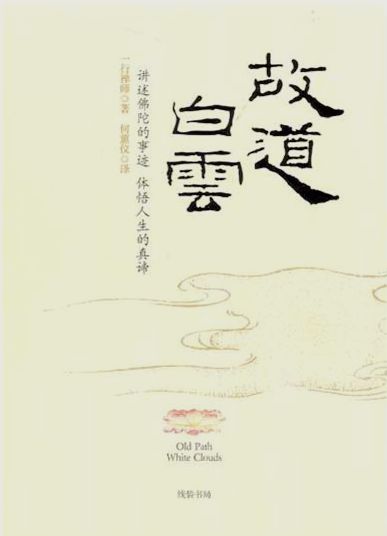Zen Master Shi Yihang, born on October 11, 1926, in Guangyi City, Guangyi Province, Vietnam, is a famous Buddhist monk, poet, scholar and pacifist in modern times. The main advocator of Buddhism. In the Chinese Buddhist tradition, all monks took "Shi" as their surname, with the name of Chengguang, the name of Fengchun, and the name of Fa. Most people respectfully call him Yihang Zen Master.
Zen Master Yihang became a monk at Cixiao Temple in Shunhua City when he was 16 years old. In 1949, he was ordained as a monk and became the 42nd generation of Linji Zen Buddhism and the eighth generation of Vietnamese Zen Master Daoguan. In the 1960s, Zen Master Yihang organized the School of Youth for Social Services (SYSS) in Saigon and began to engage in social movements. During the Vietnam War, he organized young people, set up medical centers, and assisted in the resettlement of people homeless due to the war. Later, he received a scholarship from Princeton University and arrived in the United States. He once taught courses at Cornell University and Columbia University, and continued to promote the anti war movement, hoping that the American army would withdraw from Vietnam. In 1966, he founded the "Reception Fellow Practitioner" in Vietnam, and established 14 precepts of mindfulness practice. In 1967, Martin Luther King nominated him as a candidate for the Nobel Peace Prize. In 1973, the Vietnamese government cancelled his passport and refused to let him return to Vietnam. Zen Master Yihang was exiled to France. Since then, he has been overseas for a long time and cannot return home. From 1976 to 1977, a large number of Vietnamese boat people were exiled overseas. Zen Master Yihang led the international rescue activities, hoping to help those Vietnamese boat people exiled to the Gulf of Thailand. In 1982, Meicun Buddhist Monastery was established in southern France. In 2005, the Vietnamese government sought to join the WTO by slightly opening religious freedom, and let Zen Master Yihang return home for the first time after he was exiled. The teachings of Zen Master Yihang are a vital antidote to our busy life and the understanding of human departmentalism. The reason why Zen Master Yihang is internationally renowned and respected is that he even has the title of "the father of Buddhism". This is a different biography of Buddha. It is special in that it not only vividly represents Siddhartha's life experience of becoming a Buddha, but also clearly tells the Dharma through stories. In this book, readers will never read profound terms and theories, but can only feel the most direct and straightforward life guidance, such as ice spring breeze. Everyone has a Buddha inside. As long as we keep looking inward into our hearts, let our hearts tend to good things, keep mindfulness in the present, and inject the habit of happiness into our minds, we don't need to worry when we encounter difficulties.


